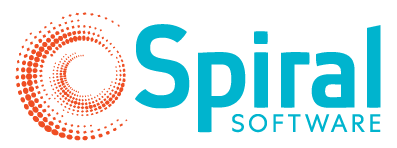
STEPCARE - DETERMINING BEST STRATEGIES THROUGH
COLLABORATION AND HISTORICAL EVIDENCE

THE STEPCARE TRIAL
The STEPCARE (Sedation, TEmperature and Pressure after Cardiac Arrest and REsuscitation) trial aims to determine the optimal intensive care treatment for patients after arrival in hospital. This study compares strategies for using sedatives, controlling fever and blood pressure management. The STEPCARE trial intends to find out how these treatment approaches can best be implemented to give cardiac arrest patients the best chance of a good recovery, improving chances of survival and preventing neurological damage.
MILESTONE
23 September 2023 - New Zealand randomises first STEPCARE Trial patient.
REPORT
Primary Outcome: Survival at 180 days with secondary outcomes including neurological function and health-related quality of life.
VIDEO
“This trial is designed to enrol a broad cohort of out-of-hospital cardiac arrest patients who are comatose following resuscitation from cardiac arrest”
PAUL YOUNG, NATIONAL INVESTIGATOR, STEPCARE TRIAL

BACKGROUND
External cardiac massage and defibrillation was developed in the 1960s and resulted in the potential to resuscitate people who suffered a cardiac arrest. Already at an early stage it was noted that these patients often suffered brain injury and a period of unconsciousness following resuscitation.
The STEPCARE collaboration aims to develop optimal treatment for these patients.
The TTM (Targeted temperature management) research network has focused on providing evidence for the best strategy for managing temperature after cardiac arrest. Hypothermia has been widely used as a strategy to improve outcomes after cardiac arrest but following two randomised trials (TTM1 and TTM2) it has become clear that this intervention, in the form that it has been used to date, is ineffective.
The COMACARE study group has performed research on how adjusting blood pressure, carbon dioxide and oxygen affect the development of brain injury after cardiac arrest.
The STEPCARE collaboration is a continuation of these projects with the aim to improve outcomes of people who suffer a cardiac arrest.
TRIAL DESIGN
The Sedation, TEmperature and Pressure Cardiac Arrest and REsuscitation (STEPCARE) trial is a 3500-participant clinical trial.
It began in August 2023 and has an estimated end date of December 2025.
The trial is being conducted in Australia, New Zealand, Finland, and Sweden.
STEPCARE is a 2x2x2 factorial trial. This means that patients included in this trial will be randomly assigned to one of two treatments for three different aspects of post-cardiac arrest management.
3500 patients who are comatose after cardiac arrest will be included in a trial studying three separate targets. All patients will be randomised to a control or an intervention arm for sedation, temperature and blood pressure targets. These are.
Continuous deep sedation for 36 hours or minimal sedation (SEDCARE)
Fever management with or without a feedback-controlled device (TEMPCARE)
A mean arterial pressure target of >85mmHg or >65mmHg. (MAPCARE)
Participants will be followed up at 30 days and 6 months. The primary outcome will be survival at 6 months.
To be accepted as an enrolment, patients must meet the following criteria:
Out-of-hospital cardiac arrest
Sustained ROSC - defined as 20 minutes with signs of circulation without the need for chest compressions
Unconsciousness defined as not being able to obey verbal commands (FOUR-score motor response of <4) or being intubated and sedated because of agitation after sustained ROSC.
Eligible for intensive care without restrictions or limitations
Inclusion within 4 hours of ROSC
KEY CONNECTIONS
Chief Investigator - Niklas Nielsen, Helsingborg Hospital, Sweden
National Investigator, Paul Young, Wellington Hospital, New Zealand

“It is an incredibly agile environment. Whatever comes my way - I jump on it and deal with it”
Spiral’s contribution
Our Spiral Project Lead and EDC Product Owner for the STOP KNEE-OA study is Amanda Daley
As a Product Owner at Spiral, Amanda oversees software development used in clinical trials. She thrives on solving complex problems and brings a logical mindset to building smarter, streamlined digital platforms.



